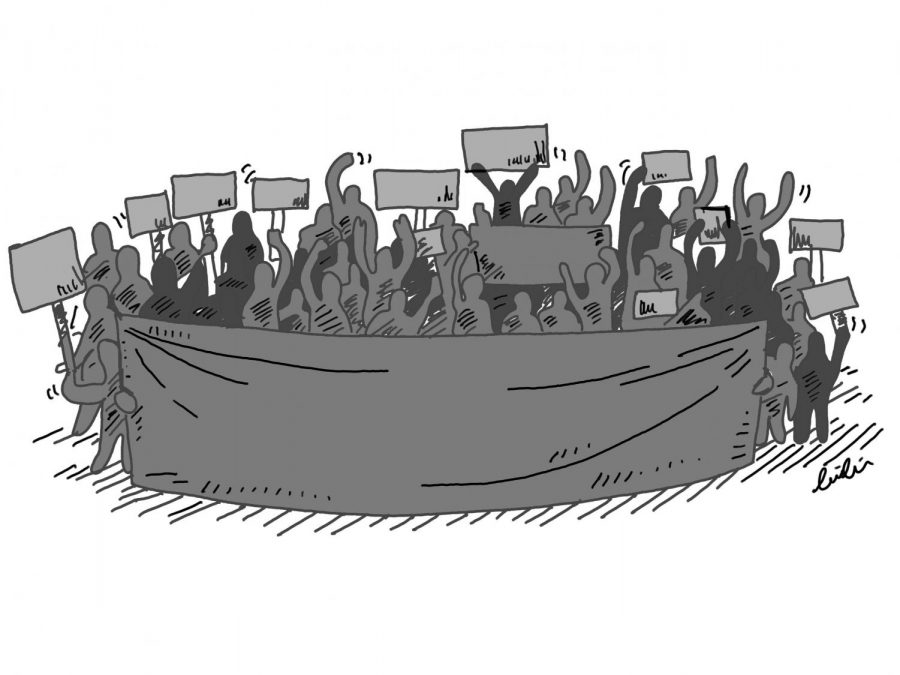OPINION: America must learn from other countries and their fight against gun violence
As opposed to other countries, America has significantly less gun control.
As the world continues to trudgingly evolve, guns have become a major point of discussion, especially within the United States. The U.S. has been built with the right to bear firearms, and this freedom has stood many tests, though the power of the gun has resulted in an uptick in crimes and violence. Other countries not built with this freedom have successfully implemented gun control, while the U.S. struggles with its own dilemma.
In the States, there have been numerous attempts by legislatures to control guns, resulting in little success. Following the Sandy Hook shooting, The Guardian reported, “The national outrage was intense, and legislators who previously were not interested in gun control measures suddenly were.” With such an event like this, people should get riled up to control firearms. Sadly, that was not the case.
When the bill was proposed to Congress, The Guardian reported that the “National Rifle Association came out in strong opposition and falsely claimed the bill would lead to a national gun registry.” Due to this, four Democrats defected, not enough Republicans came onboard and the legislation went down. The political world has always garnered some form of opposition, whether it be minor or large, but the NRA, unfortunately, has shored up resistance against gun control, preventing bills that could possibly prevent fewer deaths.
Other countries have been successful at implementing gun bills. In the U.K., when two mass shootings occurred in 1996, “a national movement called the Snowdrop Petition sprang up, calling for the banning of handguns,” the Independent, a U.K.-based news organization, reported. In this case, people ran a movement around reigning in firearms, and it worked. According to the History News Network, “The Firearms Acts had a substantial impact. Annual gun deaths fell from 246 in 1996 to 146 in 2011.” Similarly, many opinions changed in New Zealand following the Christchurch massacre. Statistics gathered from Gun Control NZ showed that a large number of New Zealanders supported the new gun control reforms implemented by the country’s left-wing Labour party. Public opinion in these two countries has allowed politicians to successfully implement gun control.
Despite this, people must not forget about the deep-rooted culture within many mindsets, which influences their way of choice and lifestyle. The location of one’s upbringing greatly influences their political views. As Pew Research’s statistics show, “Americans in rural areas typically favor more expansive gun access.” Rural areas tended to show more of a tougher stance because of hunting, farming, and self-defense in miles of land.
Currently, due to rising fear factors, such as COVID-19, riots, and hate crimes being more “present” in today’s society, there has been an increase in gun purchases throughout the U.S. The Washington Post reported that “fear of violence can, paradoxically, create the conditions for more violence.” With the fear factor, many have been driven to purchase or consider purchasing firearms as a valuable tool for defense. The radicalization and prominence of fear in the United States makes having guns a dangerous combination compared to other countries built on the same 18th-century ideals as the U.S.
The circulation of weapons still exists in all hands, and it will remain the same for as long as any weapon exists. Buyback programs ran in motion in several different regions, successfully removing guns, whether illegal or not. Cash from state and federal funding could be used to fund buyback programs, allowing higher incentives for anonymously donated weapons, which could provide better resources elsewhere, such as industry development for more jobs. The power resides within the people, their ideologies and their ability to convince politicians to make the nation safer, one town at a time.


